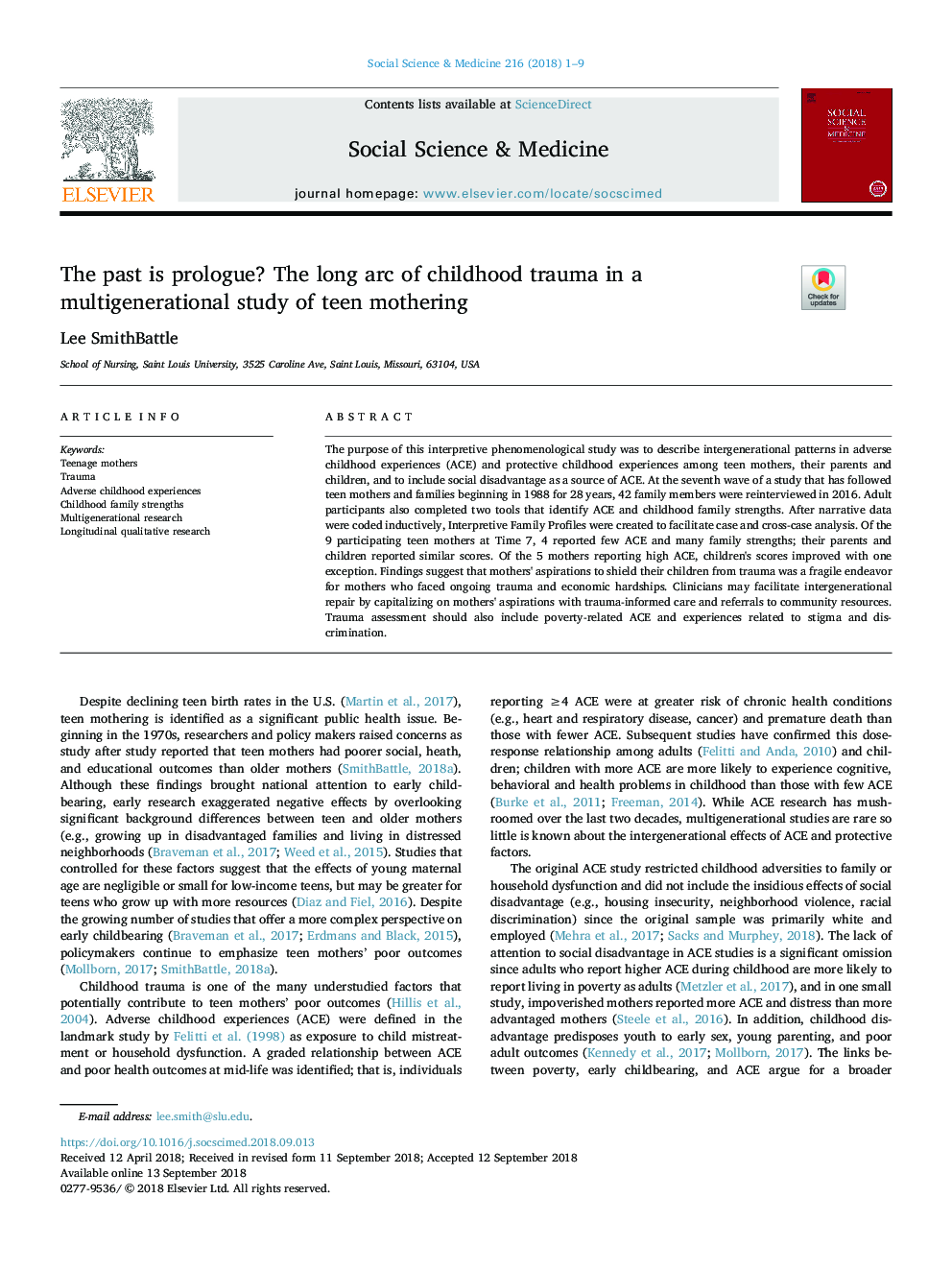| Article ID | Journal | Published Year | Pages | File Type |
|---|---|---|---|---|
| 10226722 | Social Science & Medicine | 2018 | 9 Pages |
Abstract
The purpose of this interpretive phenomenological study was to describe intergenerational patterns in adverse childhood experiences (ACE) and protective childhood experiences among teen mothers, their parents and children, and to include social disadvantage as a source of ACE. At the seventh wave of a study that has followed teen mothers and families beginning in 1988 for 28 years, 42 family members were reinterviewed in 2016. Adult participants also completed two tools that identify ACE and childhood family strengths. After narrative data were coded inductively, Interpretive Family Profiles were created to facilitate case and cross-case analysis. Of the 9 participating teen mothers at Time 7, 4 reported few ACE and many family strengths; their parents and children reported similar scores. Of the 5 mothers reporting high ACE, children's scores improved with one exception. Findings suggest that mothers' aspirations to shield their children from trauma was a fragile endeavor for mothers who faced ongoing trauma and economic hardships. Clinicians may facilitate intergenerational repair by capitalizing on mothers' aspirations with trauma-informed care and referrals to community resources. Trauma assessment should also include poverty-related ACE and experiences related to stigma and discrimination.
Related Topics
Health Sciences
Medicine and Dentistry
Public Health and Health Policy
Authors
Lee SmithBattle,
